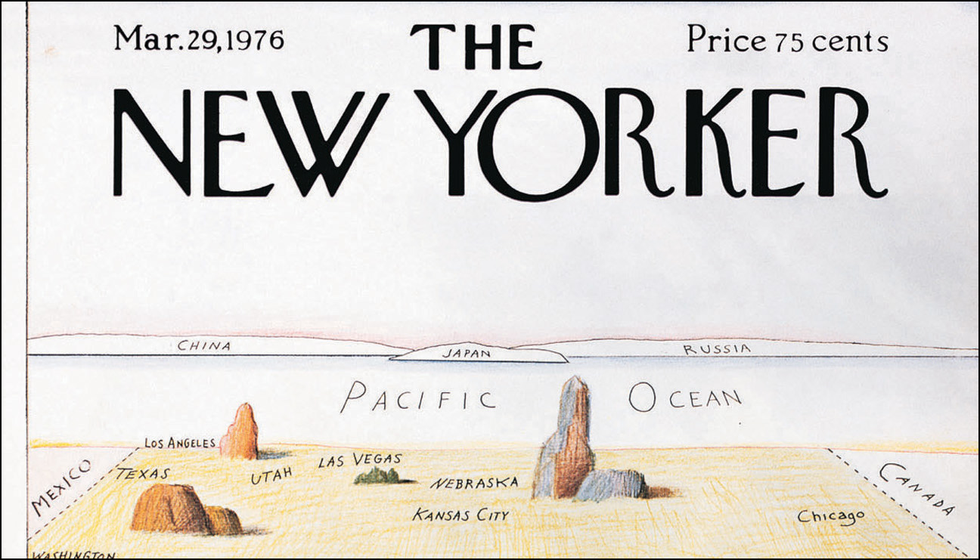In the digital age, making a virtue of mere length sends the wrong message to writers as well as readers. - James Bennet, The Atlantic.
There was a time in my life when I despised the term long-form, and for good reason. Who wants to read something that has the word long in it, anyway? If I were able to miraculously go back in time to my younger self and mention that long-form journalism would become my favorite form of writing I would’ve laughed at myself. After all, the only time that I would force myself to read anything over five pages would be during the prolonged trans-pacific flights back to the city that I was born in, Hong Kong. It was during these long haul flights that I began to take a liking to the works found in popular publications such as; The New Yorker, GQ and The Atlantic. I soon realized that not all essays found in magazine publications were boring or filled with statistics that would cause a headache. The stories that I would speed read through depicted the wild, fantastical adventures that the writer experienced. Stories of running with the bulls in Spain, or trekking up the Amazon river filled my mind with the irresistible urge to buy the next plane ticket out of town and to create a story of my own.
As I naively flipped through the thin, glossy pages of The New Yorker during a flight to visit one of my childhood friends, I came across an article that took my breath away. Adorning the first page was a snapshot of one of my all-time favorite hip-hop producers, J Dilla. The late DJ had grabbed my attention at a young age, and I was utterly obsessed with the New York musical genius. To see a man that had molded my mild mind as the feature story in such an esteemed publication made my mind race faster than any horse at the Kentucky Derby. Over the course of the flight, I re-read the article at least a dozen times, each time I fell deeper in love with the concept of a 20,000-word essay. I couldn’t stop reading the essay, even though it ranged from 20,000 to 30,000 words. All of a sudden it was not so much about how long the article might be, or how it might be daunting at first glance. Long-form nonfiction allows a writer to expand upon a certain subject thoroughly, creating a work of art that explains a specific topic in scintillating detail.
As networks of human beings displace search algorithms, editors are discovering that not just headlines but overall quality matters more and more. - James Bennet, The Atlantic.
I soon discovered after investigating the genre of writing that there was a divide of sorts for and against long-form. Many that fight for the supposedly “dying” form of journalism say that it is one of the purest forms of reporting a story. Writers of this genre, whom long-form fanatics treat as literary rock stars, delve into debated topics of choice and come up with stories that are thousands upon thousands of words long, but captivate readers with their riveting use of language. It takes more than 500 words to explain how a man in Ohio, who owned numerous exotic animals, was ultimately slaughtered by the same animals that he called his pets, an actual article printed in GQ Magazine.
Those who oppose long-form see it as a nuisance, such as James Bennet. He is a contributor to the popular publication The Atlantic and has himself written works of writing that span beyond the short-form genre that appear online and in writing classes both domestically and abroad. While not exactly fed-up with long-form as a genre, Bennet instead is “fed up with the term long-form itself, a label that the people who create and sell magazines now invariably, and rather solemnly, apply to their most ambitious work.” In this particular instance, I have to take the side of Bennet and his fellow colleagues. Journalists presumably care about words as much as anyone, so it is mysterious that they would choose to promote their stories by “ballyhooing” one of their less inherently appealing attributes. Bennet raises a point in that “Do we call certain desserts 'solid-fat-form food' or do we call them cakes and pies? Is baseball a long-form sport? Okay, sure — but would Major League Baseball ever promote it as that?” (Bennet).
Based on your research, what are the defining conventions of an essay in your field? How is essay-writing in your field similar to the writing we've done this semester--and how is it different?
Long-form nonfiction writing has been called a dying breed by many people that have read magazine journalism all their lives. However, I can not really agree with them entirely because I think that long form itself is what is keeping classic journalism alive in today’s tech savvy environment. They range from an Esquire piece on what it was like to cover the war in 1990's Bosnia, to an article I read last week in the New Yorker on an inn-keeper who practiced voyeurism on his hotel guests. These essays still encompass many of the same features that we have learned this year in Writing 101. The multimodal aspect is still intact with longer writings and provides readers with visual aids throughout the article to continue sparking their interests, helping them to finish. Countering is commonplace throughout a long-form article and is integral to show both sides of a story, possibly shedding both a positive and negative light on the story at hand.
There are numerous reasons that I think that everyone should read a few long form stories in their lifetime. For one, the writers are usually badass. I know that many have never heard the words writer and badass in a single phrase, but digging deeper into the lives of the usually faceless creators of the stories I am reading, I discover that these figures are swashbucklers in a way. For example, a writer that the majority of the Writing 101 class should recognize as a badass is John Jeremiah Sullivan, creator of the scandalous GQ article, "Violence of the Lambs." I would sum up Sullivan as a modern day Hemingway, his writing is simplistic and his view of the world has a cynical tone that is comparable to that of the late Edgar Allan Poe. Sullivan defied the rules and ethics that a journalist swears by and created a work of writing that gave GQ the story that they wanted. He mixes a bit of made up adventure with factual information, ultimately creating a story that is both captivating and confusing. As the essay progresses I was dumbfounded by not already hearing the news that an animal attack was imminent and Sullivan undoubtedly had written it that way purposefully.
To reach an ending to this debate on long-form writing I challenge others to try and look into the magazine you bought for an extended flight, or while you are waiting in the doctor’s office. The stories that you’ll find are filled with the makings that Hollywood strives for and the in-depth analysis that news writing fails to produce. The term long-form can be a bit daunting at first, but realize that if a story is worth reading than the word count does not really matter. Instead of dreading how long it is going to take to finish reading an essay, realize that you are about to be taken on a literary journey, discovering new worlds and uncovering miscellaneous stories that only badass writers can find.
























